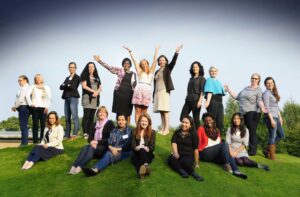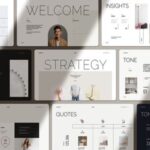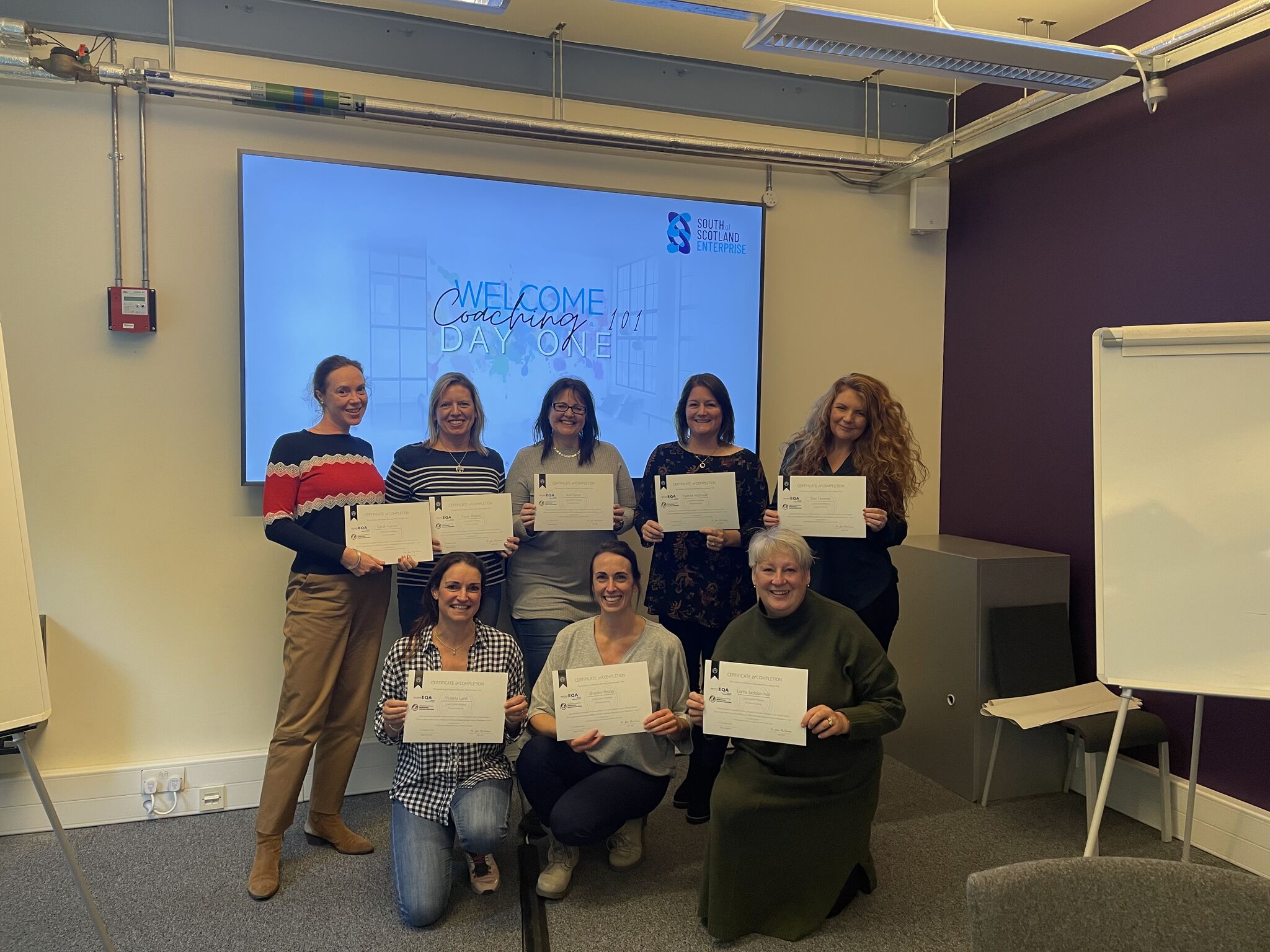- Impact Case Studies
100% Diverse.
100% Unique.
100% Custom.
- Custom Training
Over the years, our team has worked with a diverse range of clients. We collaborate with proactive organisations keen to make an impact now and in the future. Below, you’ll see a few examples.

Case Study 1: Embedding Coaching into Enterprise, Education and Governmen (2025)
Project Overview:
Between 2013 and 2025, Dr Julie McFarlane has led a series of executive coaching, mentoring, and leadership programmes across government, industry, and higher education. With over 3,500 hours of coaching experience, accreditation from both ICF and SuperCoach©, and successful delivery across sectors, Julie’s work has helped position coaching not only as a tool for personal development but as a critical lever for innovation, resilience, and inclusive growth.
Recent programmes include:
Enterprise Coaching Academy (SOSE, 2023–2025): Delivered a double-accredited coaching certification to Scottish Government business advisors.
Pathways Project Coaching Mentorship (SOSE, 2023–2025): Ongoing support to a cohort of 20 Scottish enterprise coaches to embed ethical practice, reflection, and client-centred delivery.
Neurodivergent Enterprise Network (NEN) Coaching Programme (SOSE, Jan–March 2025): Group coaching and mentoring to develop a sustainable business model for NEN’s commercialisation.
Executive Coaching (Private Sector): Ongoing coaching with clients and founding teams across organisations including Microsoft, Publicis Sapient, Duquesne Light Company, AzuraBlu, and NPL Group.
Student Coaching and Mentoring: Over 1,000 students supported in academic and pastoral coaching, building transferable skills and reflective capacity.
The Challenge:
Across sectors, coaching often sits outside formal structures—underutilised in government support models, inconsistently applied in enterprise education, and rarely embedded in university curricula. Specific challenges included:
Government business advisors defaulting to problem-solving rather than listening to client needs, leading to inefficient use of public resources.
Small business founders, particularly neurodivergent entrepreneurs, lacking confidence, clarity, and self-awareness during start-up stages.
Higher education failing to build emotional intelligence, adaptability, and reflective thinking into mainstream graduate outcomes.
Coaching gaps in professional pathways for PhDs, early-career educators, and industry-facing roles.
The common thread: technical competence was not enough—what was missing was presence, perspective, and connection.
The Solution:
Julie designed a multi-pronged coaching model grounded in ethics, psychological safety, reflective practice, and entrepreneurial leadership:
Structured Coaching Academies: Double-accredited programmes delivered through SOSE to certify government advisors in professional coaching and leadership. Advisors were trained to hold space, listen more deeply, and support client-led progress over directive problem-solving.
Targeted Mentorship Programmes: Group and one-to-one mentoring provided to active coaches via SOSE’s Pathways Project, focused on skill refinement, ethical dilemmas, boundary setting, and developmental feedback.
Neurodivergent Coaching Interventions: Tailored coaching sessions with neurodivergent founders that acknowledged cognitive difference, allowed space for reflection, and focused on strengths-based business development.
Higher Education Advocacy: Developed coaching frameworks to embed into university curricula—particularly in entrepreneurship, employability, and doctoral training—helping to develop graduates who are emotionally intelligent, collaborative, and self-aware.
Industry Coaching: One-to-one coaching for founders and executives across multiple sectors, supporting strategic clarity, team development, and personal growth.
The Impact:
Government and Economic Development
Coaching shifted business advisor behaviour from ‘solution mode’ to client-led action, saving time and improving outcomes.
Advisors reported deeper client engagement and greater impact from fewer interventions.
Enterprise and Business Founders
Coached founders—particularly neurodivergent leaders—reported increased confidence, focus, and strategic clarity.
Coaching supported enterprise growth while enhancing founder wellbeing and resilience.
Higher Education Transformation
Pioneered the case for embedding coaching into HE curricula to complement academic development with personal and professional growth.
Early pilots showed students became more reflective, self-aware, and capable of navigating uncertainty—traits critical for future leadership.
Cross-sectoral Benefits
Coaching was proven to support the same kinds of mindset shifts in small business owners, enterprise coaches, and student groups alike: clarity of purpose, emotional agility, and improved decision-making.
Conclusion:
Dr Julie McFarlane’s coaching practice demonstrates how coaching can be scaled across government, enterprise, and education to deliver long-term, human-centred impact. Whether supporting a neurodivergent founder, training a policy advisor, or mentoring a doctoral student, Julie’s approach builds confidence, shifts thinking, and creates lasting capacity for growth. Coaching is not an add-on—it is a core skill for the next generation of leaders, educators, and entrepreneurs.

Case Study 2: International Start-Up School with Nexgen (2023)
Background: In June 2023, the Academy of Enterprise Education (AEE) partnered with NexGen Careers in Barcelona to host an International Start-up School, providing a transformative learning experience for a group of students from UK Higher Education Institutions (UKHEIs). This collaborative endeavour aimed to empower students to not only develop commercially viable ideas but also future-proof their professional profiles in a hybrid learning environment.
Week 1: Idea Development in Glasgow The journey began with an immersive week at the University of the West of Scotland (UWS) in Paisley campus, Glasgow. During this initial phase, students delved into the art of idea development. Under the guidance of experienced mentors and industry experts, they honed their concepts, refining them into commercially viable prospects.
Weeks 2 and 3: Hybrid Learning in Barcelona Transitioning into the second and third weeks, students embarked on a journey to Barcelona, where NexGen Careers took over and AEE collaborated remotely to provide an enriching educational experience. Students continued to nurture their ideas, focusing on generating brand identities and crafting a robust social media presence. Moreover, they had the opportunity to explore innovation labs, gaining insights into emerging trends and future opportunities within their chosen industries.
Week 4: The Grand Finale in Glasgow Returning to Glasgow for the final week, students were well-prepared to showcase their entrepreneurial journey. They pitched their refined ideas, demonstrating their growth and development throughout the program. The culmination of this Y experience was marked by innovative ideas and professional profiles primed for success in the ever-evolving landscape of entrepreneurship.
Outcomes and Impact: The iSUS proved to be a remarkable learning journey. Students not only gained practical knowledge in the start-up process, but also experienced first hand the innovation landscape in Barcelona.
Through this immersive experience, AEE and NexGen Careers demonstrated their commitment to bridging the gap between academic theory and real-world application. The program fostered the growth of commercially viable ideas and empowered students to adapt to and shape the future of their chosen industries. A testament to the power of experiential learning and collaborative partnerships in shaping the entrepreneurial leaders of tomorrow.

Case Study 3: Tomorrow's Founder: Early Years Enterprise (June 2018)
Introduction: In June 2018, Dr Julie McFarlane, an assistant professor at Heriot-Watt University, embarked on a partnership with Tannochside Primary School in South Lanarkshire. The objective was to infuse enterprise skills into the early years curriculum through an enterprise Project. A six-week initiative, inspired by a Dragon’s Den style competition, aimed at raising funds for CHAS, a hospice charity, and the remarkable outcomes it yielded.
The Challenge: The challenge was clear: How could primary school students be introduced to essential enterprise skills while also contributing to a charitable cause? The six-week program, was designed to engage students in learning about entrepreneurship, product development, budgeting, and brand development while nurturing their philanthropic spirit. It encouraged them to create and run their own businesses. The core challenge was for students to develop and sell a range of flavoured drinks. Divided into rival teams, they were tasked with applying their creativity, resourcefulness, and teamwork to devise the most enticing and marketable beverages. While fostering entrepreneurial spirit, the project also aimed at nurturing empathy. The teams set their sights on a noble goal: raising money for CHAS, a charity dedicated to supporting terminally ill youngsters in the county.
Learning Outcomes: Over the course of six weeks, students gained a detailed understanding of various aspects of entrepreneurship and enterprise:
- Product Development: They learned how to conceptualise, create, and market a product.
- Budgeting: The project introduced them to financial literacy, teaching them to manage budgets effectively.
- Brand Development: Each team developed their brand identity, which included naming, packaging, and marketing strategies.
- Teamwork: The initiative encouraged collaboration, as students worked together in their teams to bring their entrepreneurial dreams to life.
Impact: The project not only equipped students with invaluable enterprise skills but also had a profound impact on the chosen charity. Through their entrepreneurial efforts, the students raised an impressive £400 for CHAS. This financial contribution played a significant role in supporting terminally ill children in the region. Moreover, the project’s immersive nature transformed the learning experience for students, making it more engaging, practical, and memorable.
Conclusion: The early years enterprise project at Tannochside Primary School stands as a testament to the power of educational mentoring in fostering innovation and community engagement. Dr Julie McFarlane’s approach not only imparted vital enterprise skills to young learners but also instilled in them the spirit of empathy and philanthropy.

Case Study 4: Teacher Training
Strategic Learning and Teaching Leadership – Director Role (2020–2025)
Project Overview:
As Director of Learning and Teaching from 2020 to 2025, Dr Julie McFarlane led a department-wide strategic review of all academic programmes, teaching delivery, and staff development processes. This multifaceted role spanned curriculum design, quality assurance, professional development, and academic leadership. Julie’s remit was to identify gaps, enhance alignment with institutional strategy, and build capacity across academic teams. Her leadership resulted in a refreshed Learning and Teaching Strategy, a new HEA-accredited doctoral training pathway, and a renewed culture of continuous improvement across the department.
The Challenge:
The department, while strong in delivery, lacked a coherent strategy to guide future-facing learning and teaching. Challenges included:
Fragmentation across programme design and delivery, leading to inconsistent student experiences;
Outdated training provision for doctoral and early-career teaching staff;
Limited cross-programme innovation, with missed opportunities for curriculum coherence and pedagogical development.
Julie’s role required both systemic oversight and deep consultation—balancing strategic thinking with practical implementation, particularly in the wake of pandemic-driven disruptions.
The Solution:
Julie led a structured and inclusive approach to departmental renewal:
Strategic Programme Review:
Conducted interviews with academic and administrative staff to assess existing programme structures, identify content gaps, and evaluate delivery effectiveness. This process informed a full redesign of the department’s Learning and Teaching Strategy, aligning it with institutional goals on digital education, inclusivity, and employability.Curriculum and Assessment Reform:
Audited module materials and assessments to ensure pedagogical coherence, alignment with learning outcomes, and relevance to real-world application. Introduced student choice mechanisms and authentic assessment tools across multiple programmes.Doctoral Teacher Training Programme:
Designed and launched a new HEA-accredited training programme for PhD students teaching across the department. The programme focused on inclusive pedagogy, assessment literacy, and reflective practice. Due to its success, it was later extended to Enterprise Fellows across the wider faculty.Academic Capacity Building:
Facilitated staff development workshops on feedback literacy, curriculum mapping, and active learning strategies. Supported colleagues to apply for HEA recognition, with increased numbers achieving Fellowship or Associate status.
The Impact:
Julie’s leadership delivered measurable benefits at both departmental and institutional levels:
Strategic Clarity:
The new Learning and Teaching Strategy provided a clear, shared direction for innovation and quality assurance across programmes.Enhanced Staff Capability:
Over 40 doctoral students and Enterprise Fellows received accredited training, strengthening the pipeline of confident, capable educators.Improved Student Experience:
Module evaluation scores rose, particularly in areas related to assessment clarity, learning resources, and active engagement.Cultural Shift:
The department reported stronger collaboration between programme leads and greater ownership of continuous improvement.
Conclusion:
Julie McFarlane’s tenure as Director of Learning and Teaching delivered a lasting legacy of quality, coherence, and academic leadership. Her ability to translate strategic aims into operational outcomes, while empowering staff and students alike, repositioned the department as a model of innovation and inclusion. This case underscores her strength in leading complex change across academic teams, structures, and systems.

Case Study 5: Tranforming UG Learning at Scale - Strathclyde's MDP (2019)
Project Overview:
In her role as Director of Strathclyde Business School’s flagship Management Development Programme (MDP), Dr Julie McFarlane led a strategic overhaul of a core three-year curriculum delivered to over 1,800 undergraduate students. The redesigned programme was launched during the height of the COVID-19 pandemic—a moment that demanded resilience, creativity, and agility. The new MDP was built around real-world relevance, student voice, and blended delivery, aligning fully with the University of Strathclyde’s strategic commitment to inclusive, future-facing education. The result was a dynamic, student-led learning journey integrating academic rigour with professional development, enterprise, and global citizenship.
The Challenge:
While the MDP had long been a cornerstone of the undergraduate experience, it required transformation to remain fit for purpose. Julie faced three core challenges:
Rapidly changing business and educational environments, exacerbated by COVID-19, Brexit, and globalisation;
Scaling innovation across a multi-year programme involving nearly 2,000 students;
Embedding relevance by integrating theory with practice, reflection, and professional competencies.
There was also an institutional appetite to move away from passive, standardised teaching models and towards student-centred, experiential education. Julie was tasked with reimagining the MDP to meet this brief under pandemic constraints.
The Solution:
Working collaboratively with tutors, administrators, and students, Julie led the full redesign of MDP Years 1–3:
MDP1: Innovation, Commercialisation & Entrepreneurship (ICE)
Delivered online and on-campus during the pandemic, this first-year pathway introduced design thinking, idea generation, stakeholder mapping, and rapid prototyping—providing students with entrepreneurial mindsets from the outset.MDP2: Projects, Process & Professionalism (PPP)
Focused on critical thinking, team-based consultancy projects, and personal effectiveness—bridging academic theory and applied business contexts.MDP3: World of Work (WOW)
A work-based learning model featuring internships, reflective journals, and industry placements with partners such as Barclays, Morgan Stanley, Hearts Football Club, and Scottish SMEs.
Innovations included:
Assessment choice and flexibility, including video pitches, case simulations, and critical essays;
Co-design with students, ensuring ownership and buy-in;
Guest lectures from industry and the third sector, enhancing engagement and relevance;
Blended learning environments leveraging asynchronous content and live virtual tutorials.
The Impact:
Despite launching mid-pandemic, the reimagined MDP demonstrated exceptional results:
Student Ownership and Engagement
Learners were more deeply invested in their development, with evaluations noting increased confidence, creativity, and clarity.Graduate Employability
Students graduated with tangible workplace skills—from stakeholder mapping and ethical decision-making to value creation and pitching.Scalable Educational Innovation
The model has been used to inform similar curriculum reforms at Strathclyde and beyond, showcasing best practice in digital and inclusive learning design.Enduring Legacy
Julie’s redesign created a flexible framework that has remained relevant and impactful in the post-pandemic context, demonstrating the value of co-created, practice-based learning at scale.
Conclusion:
The MDP transformation at Strathclyde Business School is a powerful example of what’s possible when curriculum innovation meets bold leadership. Launched in one of the most turbulent years for education globally, the programme empowered students to lead, reflect, and act with purpose—preparing them to thrive in complex and uncertain futures. Julie McFarlane’s work on the MDP remains a benchmark in enterprise education and large-scale pedagogical change.

Case Study 6: Apprentice Charity Challenge
Erasmus Mundus Programme Leadership – Heriot-Watt University (2011–2018)
Project Overview:
As Programme Director for Heriot-Watt University’s Erasmus Mundus joint master's programmes, Dr Julie McFarlane led the strategic delivery of two flagship international postgraduate pathways. The role involved end-to-end programme leadership—from recruitment and academic design to partnership management and industry engagement—delivered in collaboration with consortium partners across Italy, Spain, Germany, and Sweden. Beyond academic oversight, Julie championed the inclusion of experiential and entrepreneurial learning opportunities, significantly enhancing the student experience and graduate outcomes.
The Challenge:
While Erasmus Mundus programmes offered unparalleled mobility and academic diversity, there were key challenges:
Operational complexity in managing cross-country delivery and partner coordination;
Bridging academic learning with real-world relevance, especially in relation to employability;
Supporting international students with integration, confidence-building, and community connection in their host country.
Julie’s leadership sought not only to deliver a robust academic experience, but also to position students for professional success and long-term network building across sectors and borders.
The Solution:
Julie introduced a series of innovations that redefined the student journey and the role of Erasmus within the host institution:
Comprehensive Programme Management:
Julie oversaw full-cycle recruitment, from shortlisting to final selection, ensuring a diverse, high-calibre intake year on year. She also led programme design and academic coordination in close collaboration with EU partners, maintaining strong alignment across curricula and credit systems.Industry-Embedded Learning:
Strategic industry links were cultivated with major partners including Standard Life Investments, Hearts Football Club, and Arbikie Highland Distillery, resulting in placements and long-term career opportunities. Notably, two Erasmus students went on to full-time employment with Standard Life as a direct result of these partnerships.Entrepreneurial Integration – The Apprentice Charity XChallenge:
To build cultural familiarity and foster entrepreneurial thinking, Julie designed and led a three-year innovation project. Students were divided into two cross-national teams and given £350 in seed funding to launch pop-up enterprises, competing to raise money for a charity of their choice. The project incorporated workshops on ideation, pitching, sales, and market research—all embedded in a fast-paced, immersive format.Community and Belonging:
Recognising that many students had never been to Scotland, the project served as both an entrepreneurial bootcamp and a cultural orientation. It provided peer connection, confidence, and local insight, helping students bond and settle into their new academic and social environments.
The Impact:
The programme delivered outstanding academic, professional, and personal outcomes:
Professional Trajectories:
Many graduates transitioned into roles within their placement organisations or leveraged the experience to launch careers across Europe.Network Building:
Students formed enduring professional and personal networks across borders, frequently citing the Erasmus experience as foundational to their career development.Lasting Legacy:
The Apprentice Challenge remains one of the most highly praised aspects of the programme, with alumni regularly referencing the final pitching session as their most transformational experience.Cross-Institutional Excellence:
The programme model became a best practice example of how Erasmus initiatives can meaningfully integrate academic theory, cultural immersion, and real-world application.
Conclusion:
Julie McFarlane’s leadership of the Erasmus Mundus programmes at Heriot-Watt University exemplified holistic, student-centred international education. By combining operational excellence with creative, hands-on learning models, she ensured that students left with more than a degree—they graduated with clarity, confidence, and a community. Her approach continues to influence how Erasmus is positioned within postgraduate education across the UK and Europe.

Case Study 7: School for Female Founders (2013)
Project Overview:
In 2013, Informatics Ventures launched the inaugural Scottish School for Female Entrepreneurs in response to the need for more tailored support for women founders in Scotland’s growing tech and innovation sectors. Dr Julie McFarlane was invited to design and lead the initiative. The aim was to create a high-impact residential programme that would empower women with the confidence, tools, and strategic insight to build scalable businesses, refine their value propositions, and attract investment. The programme brought together 25 female entrepreneurs over an intensive weekend, with sessions focused on entrepreneurial clarity, strategic planning, and investment readiness. The event was a landmark moment in gender-focused enterprise education and received widespread media attention.
The Challenge:
Despite an increase in entrepreneurial activity across Scotland, women remained significantly underrepresented in tech start-up leadership, funding rounds, and accelerator programmes. Many had promising business ideas but lacked access to networks, targeted training, or investor-facing support. The challenge was to rapidly build entrepreneurial capacity, address confidence gaps, and provide a structured pathway to growth — all within a short, immersive timeframe. There was also a wider cultural challenge: to demonstrate that Scotland’s innovation ecosystem could be inclusive, diverse, and reflective of all entrepreneurial talent.
The Solution:
Over two intensive days, the programme delivered a carefully curated mix of workshops, mentoring, and peer learning activities. Dr McFarlane designed the weekend to follow a founder’s journey — from refining the business concept to mapping growth strategies and preparing a compelling investor pitch.
The learning model incorporated lean start-up methodology, customer validation frameworks, and entrepreneurial storytelling techniques. A final pitching session allowed each founder to present their refined value proposition to a panel of mentors and invited guests. Participants also benefited from high-level feedback, networking, and peer accountability.
The Impact:
The programme’s outcomes were immediate and far-reaching:
Confidence and Clarity: Participants left with stronger narratives, greater commercial focus, and the tools to pursue funding or partnerships with clarity.
Pathways to Growth: Several attendees progressed their ventures to investment readiness or formed new partnerships and spin-outs.
Visibility and Influence: The event received strong press coverage and became a benchmark for gender-inclusive innovation support.
Sectoral Shift: The success of the programme inspired similar initiatives, prompting other organisations to examine how they support underrepresented founders.
Conclusion:
The Scottish School for Female Entrepreneurs delivered more than just a weekend of training—it sparked a shift in how female founders were supported in Scotland’s start-up ecosystem. Dr Julie McFarlane’s leadership ensured the programme was both strategically designed and emotionally impactful. It provided a platform for women to lead, pitch, and grow in a space historically dominated by male-led ventures. This case study remains a powerful example of how focused, inclusive interventions can unlock new talent and drive cultural and commercial change.
- Consultancy
Over the years, we have been involved in a wide range of projects across various industry sectors, from sustainability initiatives to market development strategies. Below, you’ll find a few examples.

Case Study 1: NPL Group
Project Overview: In October 2018, Dr. Julie McFarlane was enlisted by NPL Group to undertake a comprehensive analysis of their existing brand identity and subsequently create a new brand identity and market strategy. Collaborating with the marketing agency 999 Creative, Dr. McFarlane played a pivotal role in reshaping the group’s brand image and overall approach.
The Challenge: Operating under the NPL Estates umbrella, the company has undertaken numerous acquisitions of other firms over its history. While a strategic decision, this posed significant challenges for maintaining brand consistency. Each acquired brand maintained its individual website and distinct logos, making the process of unifying the brands within the group quite daunting. NPL Group recognized the need for a fresh and compelling brand identity that aligned with their evolving vision and objectives. They sought expertise to not only rebrand but also devise a robust marketing strategy to drive growth.
The Solution: Dr. Julie McFarlane, in tandem with 999 Creative, embarked on a multifaceted project. They began with a rigorous analysis of NPL Group’s existing brand, identifying areas for improvement. Subsequently, they developed a new brand identity that encapsulated the essence of the group and its aspirations. This included a complete website redesign to reflect the reimagined brand. Additionally, a comprehensive marketing strategy was crafted to propel NPL Group forward.
The Impact: The rebranding and marketing efforts led by Dr. McFarlane bore fruit as NPL Group experienced a revitalized brand image and increased market visibility. The group was better positioned to achieve its growth objectives, thanks to the visionary leadership of Dr. McFarlane and the creative expertise of 999 Creative.

Case Study 2: Coach Training UKHEI (2021)
Empowering UKHEI Students through Coach Training - AEE's Impact
Case Study 3: Revolutionising Education: Zoom Abroad (2023)

Case Study 4: Azurablu (2023)

Case Study 4: Azurablu (2023)

Case Study 4: Azurablu (2023)

Case Study 4: Azurablu (2023)

Case Study 4: Azurablu (2023)

Case Study 4: Azurablu (2023)

Case Study 4: Azurablu (2023)

Case Study 4: Azurablu (2023)
- Executive Coaching
In 2021/22, we launched the first iteration of our accredited coach training programme. Our inaugural client was the University of Strathclyde, which commissioned us to design a bespoke programme aligned with their curriculum and credit framework. The outcomes of this pilot were published in 2023.
Since then, the programme has gained dual accreditation at Level 7 from both the IAPC&M and the EMCC. We are now delivering this training to Scottish Government Business Enterprise Advisors, with our second cohort currently underway.
In parallel, we have been collaborating with the Scottish Government on the Pathways Project, mentoring their coaches deployed to support local founders. This includes tailored coaching and mentoring for neurodivergent entrepreneurs across Scotland.
At AEE, we bring extensive experience in designing and delivering accredited coach training programs tailored to our clients’ needs. The impact has been remarkable across both industry and academia.
Get in touch to explore how executive coaching could transform your organisation.

Case Study 3: Coach Mentoring Pathways (2024)

Case Study 4: Coaching Neurodivergent Entrepreneurs
AEE Speaking Engagements: Our academic contributors bring a wealth of knowledge dissemination experience, whether it’s in the classroom, through publications, presentations at conferences, or media appearances (even a comedy club or two with Dr Kyle Andrews). Many of our team members are active teaching academics, visiting scholars, industry leaders, and esteemed speakers at academic, political, and industry events worldwide. To book one of our team members for your event, please contact us at info@aoee.co.uk.
AEE Speaking Engagements: Our academic contributors bring a wealth of knowledge dissemination experience, whether it’s in the classroom, through publications, presentations at conferences, or media appearances (even a comedy club or two with Dr Kyle Andrews). Many of our team members are active teaching academics, visiting scholars, industry leaders, and esteemed speakers at academic, political, and industry events worldwide. To book one of our team members for your event, please contact us at info@aoee.co.uk.
Our academic contributors collectively possess more than 40 years of experience in their individual domains, bringing substantial expertise to their specialised fields. The team, through their combined efforts, has supervised and mentored hundreds of thousands of students worldwide in their respective fields. Additionally, many of them hold roles as non-executive board members, industry directors, business advisors, and mentors, providing valuable support to clients across various sectors. Notable examples of our recent collaborations include NPL Purgo (2019-2021), Youth Enterprise Scotland (2023), University of Stirling (2020-2024), and Ulster University in Belfast (2022). For inquiries about our private thesis supervision or mentoring services, please contact us at info@aoee.co.uk.
Case Study: Mentoring for Early Years Enterprise (June 2018)
Introduction: In June 2018, Dr Julie McFarlane, an assistant professor at Heriot-Watt University, embarked on a partnership with Tannochside Primary School in South Lanarkshire. The objective was to infuse enterprise skills into the early years curriculum through an enterprise Project. A six-week initiative, inspired by a Dragon’s Den style competition, aimed at raising funds for CHAS, a hospice charity, and the remarkable outcomes it yielded.
The Challenge: The challenge was clear: How could primary school students be introduced to essential enterprise skills while also contributing to a charitable cause? The six-week program, was designed to engage students in learning about entrepreneurship, product development, budgeting, and brand development while nurturing their philanthropic spirit. It encouraged them to create and run their own businesses. The core challenge was for students to develop and sell a range of flavoured drinks. Divided into rival teams, they were tasked with applying their creativity, resourcefulness, and teamwork to devise the most enticing and marketable beverages. While fostering entrepreneurial spirit, the project also aimed at nurturing empathy. The teams set their sights on a noble goal: raising money for CHAS, a charity dedicated to supporting terminally ill youngsters in the county.
Learning Outcomes: Over the course of six weeks, students gained a detailed understanding of various aspects of entrepreneurship and enterprise:
- Product Development: They learned how to conceptualise, create, and market a product.
- Budgeting: The project introduced them to financial literacy, teaching them to manage budgets effectively.
- Brand Development: Each team developed their brand identity, which included naming, packaging, and marketing strategies.
- Teamwork: The initiative encouraged collaboration, as students worked together in their teams to bring their entrepreneurial dreams to life.
Impact: The project not only equipped students with invaluable enterprise skills but also had a profound impact on the chosen charity. Through their entrepreneurial efforts, the students raised an impressive £400 for CHAS. This financial contribution played a significant role in supporting terminally ill children in the region. Moreover, the project’s immersive nature transformed the learning experience for students, making it more engaging, practical, and memorable.
Conclusion: The early years enterprise project at Tannochside Primary School stands as a testament to the power of educational mentoring in fostering innovation and community engagement. Dr Julie McFarlane’s approach not only imparted vital enterprise skills to young learners but also instilled in them the spirit of empathy and philanthropy.



